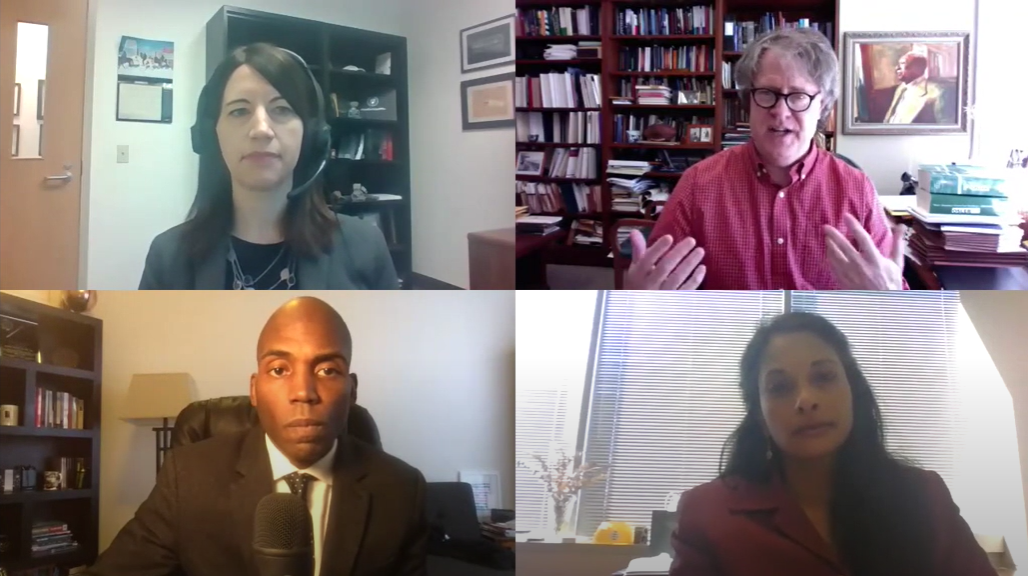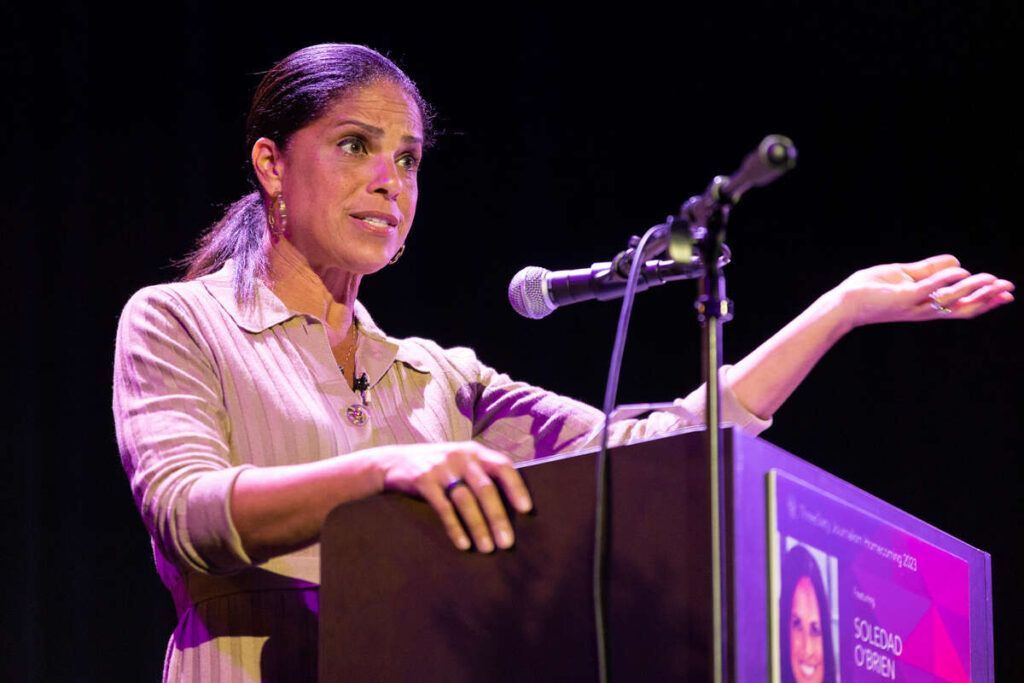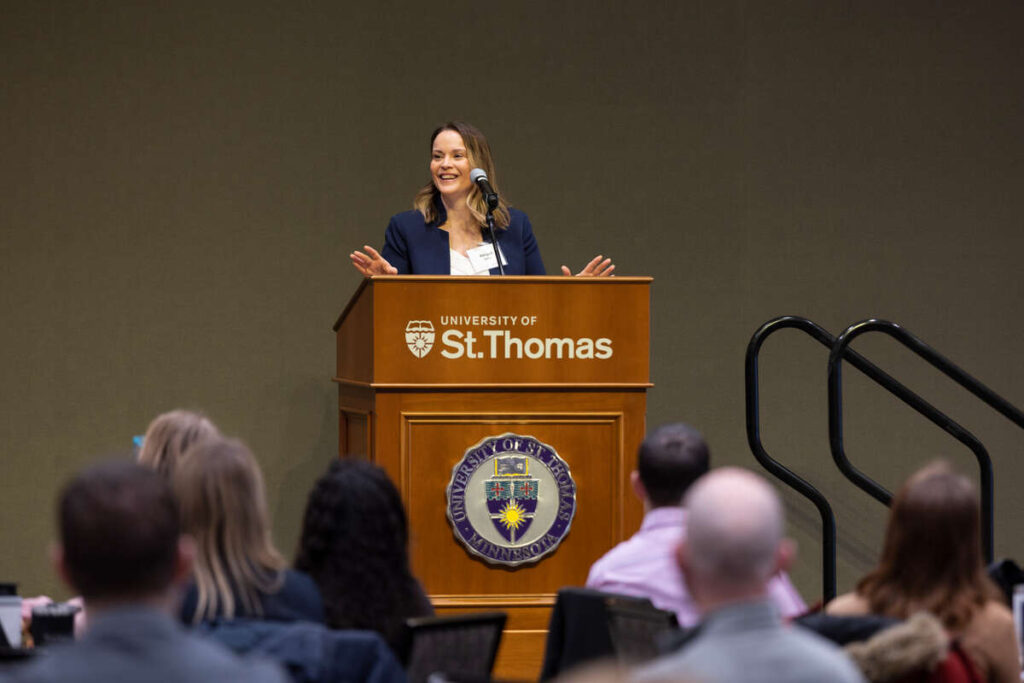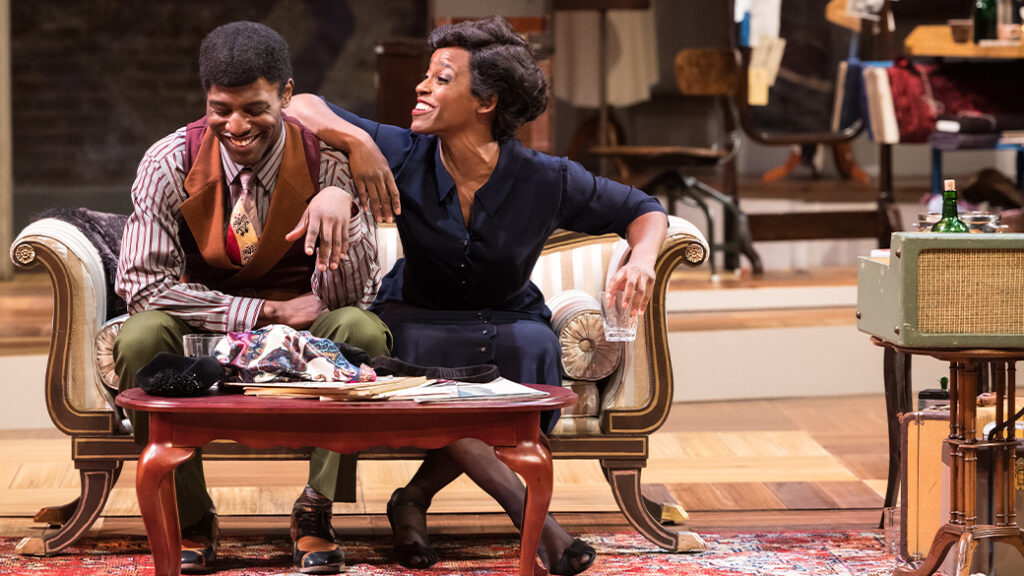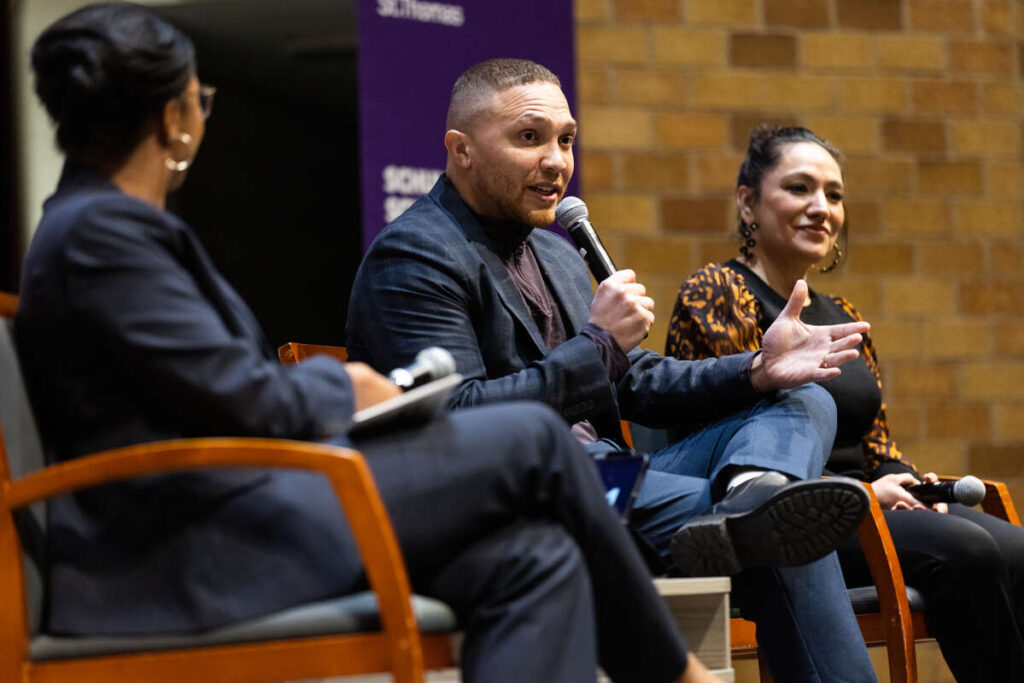Many around the world turned their attention Monday to the first day of proceedings in the trial of Derek Chauvin, one of the four former police officers charged in the killing of George Floyd. Much-awaited and much-talked about in the days and weeks leading up to the start of the proceedings, the trial, however, saw a delay in jury selection as an appellate court opinion was sought regarding whether or not they could proceed with it as a third charge is considered.
St. Thomas law professors explained in a panel discussion ahead of the week what the public can expect to see as the trial unfolds, including an explanation of the multiple charges Chauvin faces.
The March 4 panel discussion "Legal Perspectives on the Chauvin Trial" was moderated by Dr. Yohuru Williams, the founding director of St. Thomas' Racial Justice Initiative. Participating law professors were Rachel Moran, Mark Osler and Rachel Paulose.
Here are five observations from the event, which was coordinated by the St. Thomas Civic Engagement, Voter Engagement & Education and Advocacy Task Force.
Understanding the charges

Rachel Moran
A second-degree murder charge involves a maximum sentence of 40 years in prison and means the state would have to prove that Chauvin unintentionally killed George Floyd while committing a separate felony causing serious bodily harm, said Moran, who is the founder of the Criminal and Juvenile Defense Clinic at St. Thomas.
The lesser of the two charges, which is still a serious charge, Moran said, is second-degree manslaughter, which carries a maximum sentence of 10 years in prison.
"Second-degree manslaughter is really about Derek Chauvin’s state of mind. To prove him guilty of second-degree manslaughter, the state has to show that he acted negligently; that he knew there was a risk of serious bodily harm and that he negligently created that unreasonable level of risk; not that he intended to kill, but that he created a risk, that basically he shouldn’t have created, of death or serious harm by his actions of kneeling on Mr. Floyd."
She added that "the third possible charge is where things get really complicated." The third-degree murder charge is the very first charge filed against Chauvin last summer when Hennepin County was filing this case alone, before the attorney general joined to assist the prosecution.
"The judge allowed the state to move forward on all charges but the third-degree murder. At the time the trial judge’s reasoning was that because of the language of the Minnesota statute he thought third-degree murder only applies if you create a risk not just to the person who died, but to others as well. That language 'to others' is where things get confusing. The judge thought you had to create a risk of harm to multiple people. In this case only George Floyd was at risk of harm, so the judge dismissed the third-degree murder charge."
The lawyers are waiting to hear if Judge Peter Cahill will reinstate the third-degree murder charge after an appellate court issued an order on Friday, March 5, saying that the judge could reconsider hearing whether or not they will proceed with or without this charge, as it indeed can be applied to only one person at risk of harm, not multiple people. The judge also said on Monday that he will continue with juror selection on Tuesday unless the appellate court says otherwise.
Pandemic complicates juror selection and seating

Mark Osler
The COVID-19 pandemic adds further complication to the case, said Osler, especially when it comes to juror selection. "While they are being questioned, potential jurors may be wearing a mask," he said. "That of course hides clues that usually we’re going to be looking for [such as] how does someone look when the defendant walks in the room."
Observing facial expressions is key when prosecutors and defense attorneys pick juries, he said. "With people masked that will be a new challenge."
There will also be a limitation on the number of lawyers allowed in the courtroom. There will only be a few media representatives allowed, and the families of George Floyd and Derek Chauvin will be allowed to have only one relative at a time in the courtroom due to social distancing safety protocols. However, different family members can rotate through the one designated seat per family. Public seating is also limited.
The trial will be livestreamed by media outlets because of the limited seating.
Race is not a case factor, but is publicly significant
"This trial is not going to be about race," said Osler. "The defense has to show doubt in a number of elements and none of those elements have to do with race." He added that fact "is going to be jarring" for some members of the public to understand given that what happened last summer was a profound incident and discussion involving race.
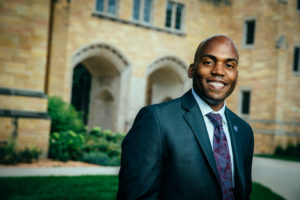
Yohuru Williams
When public recording of the death of Floyd spread around the world showing Chauvin, a white police officer, kneeling on the unarmed African American man's neck for approximately nine minutes as he cried that he couldn't breathe and onlookers shouted for the police to release their forced hold on the victim, race was top of mind for the public. Studies show that African American men have a higher probability of being killed by police officers due to excessive force than do any other demographic group.
Williams chimed in that although this case does not turn on issues of race the topic is still of significance for the public because of ongoing conversations of racial justice and police brutality reform and systemic bias.
Moran agreed. "This case is incredibly significant for our country’s reckoning of issues with racial injustice. This case is emblematic of a long history of Black people being killed at the hands of white people and white people having legal impunity for those actions. It is impossible to decouple this case from the history of racial injustice in our country, and specifically of violence toward Black people and white people getting away with that."
"The danger here is this trial has a huge potential to make the racial divide tension in this country potentially worse and not a lot of potential to make it better," said Osler, a former federal prosecutor and the Robert and Marion Short Distinguished Chair in Law at St. Thomas.
Pre-trial filings from the defense and the prosecution give case insight
"No one disputes that Mr. Floyd was killed while he was in police custody," said Paulose. "The question is, how was he killed. The government’s case is that it was excessive force. By contrast, the defense is claiming that the police, including Derek Chauvin, used reasonable force. And they are going to claim that Mr. Floyd is to blame for his own death."

Rachel Paulose
Paulose said the government has alleged Chauvin has a modus operandi, meaning a practice of using holds on suspects and using excessive force. "He has faced 17 complaints over the years, including three shootings," she added.
The government also will walk "very slowly and methodically through the timeline of what happened" leading up to Floyd's death, she said. “They will point out that Mr. Floyd was very calm and that the police were out of control from the outset."
Part of the prosecution's case will include arguments that Floyd said that he couldn't breathe, and onlookers expressed fear for Floyd's life.
"The critical piece is Derek Chauvin continued to kneel on Mr. Floyd’s neck [for nearly nine minutes] even after Mr. Floyd stopped breathing, even after his colleague confirmed that Mr. Floyd had no pulse, and even after medical personnel arrived on the scene to treat Mr. Floyd."
She said the government is claiming the cause of death was suffocation from a combination of the restraints, resulting in a heart attack.
The defense's case, as outlined in court pleadings, is that the most likely cause of Floyd’s death was fentanyl or combination of drug overdose with his underlying health conditions.
There will be a lot of blaming the victim, said Osler. "They are taking the Black victim and tearing him down in a fairly stereotypical way."
Paulose, who is a former U.S. attorney for the District of Minnesota, pointed out that the defense's approach is not unusual. "Police officers have historically used in trials the 'blame-the-victim' card. This also relies heavily on racial stereotypes that have been successful in past trials around the country."
Win or lose, there will be some positive outcomes
Regardless of whether one is for the defense or the prosecution, this case will likely result in some positive outcomes for Americans at the expense of George Floyd's death.
"Since George Floyd’s death, there have been at least 25 states that have passed measures of reform around policing to hold police officers more accountable," Moran said.
Osler noted that there will be a lot of "hard work" accomplished outside of the courts. "There is a lot of that work to do and some of that is in the legislature," he said.
Still, "we also have to be realistic of the shortcomings of criminal trials," said Moran. "They don’t bring back Mr. Floyd. They don’t bring much measure of peace to his grieving family."
